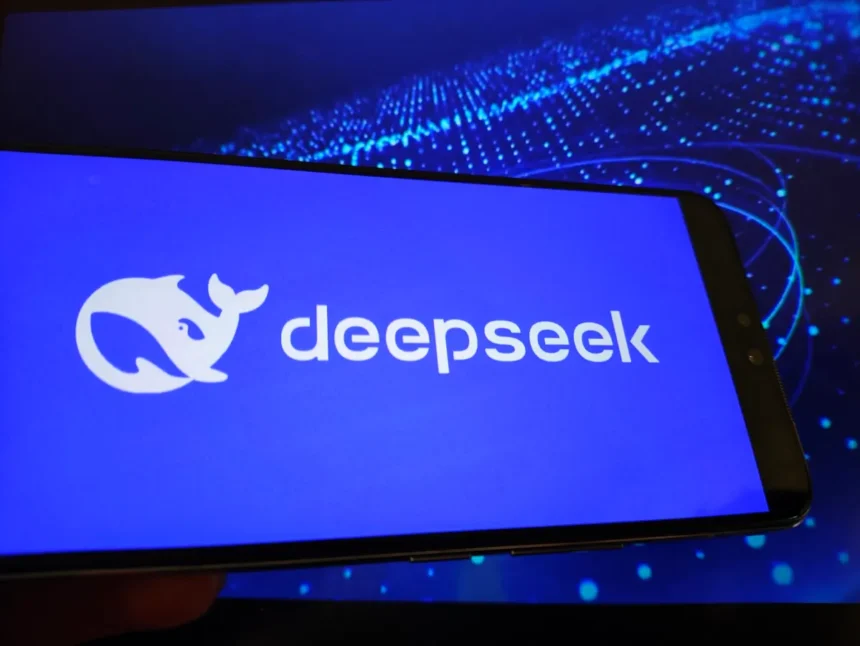DeepSeek, a rising force in the AI industry, has rapidly gained global attention—but not always for the right reasons. The Chinese AI company, known for its cutting-edge models and chatbot applications, has found itself at the center of a growing controversy. Concerns over ethics, data privacy, and security vulnerabilities have led to a wave of bans from governments, corporations, and public institutions worldwide.
The primary concern? The potential for sensitive user data to be accessed by the Chinese government. DeepSeek’s privacy policy states that all user data is stored in China, where stringent data-sharing laws require organizations to comply with intelligence agency requests. This has fueled fears that the AI-powered platform could serve as a backdoor for foreign surveillance.
As more regions take action against DeepSeek, we’ll continue to update this list. Below is an overview of the countries and public-sector organizations that have moved to prohibit the use of DeepSeek’s technology.
Italy: A Swift Crackdown on Privacy Concerns
Italy was among the first nations to take decisive action against DeepSeek. The country’s Data Protection Authority (DPA) launched an investigation into the company’s data collection practices, questioning whether it complied with the General Data Protection Regulation (GDPR)—the European Union’s stringent data protection law.
In late January, the DPA demanded that DeepSeek disclose details about its data storage and usage practices within 20 days. The company argued that its operations did not fall under EU jurisdiction, but Italian regulators disagreed. As a result, authorities ordered the removal of DeepSeek’s apps from both Apple and Google app stores within Italy, effectively cutting off access for Italian users.
Taiwan: National Security at the Forefront
Taiwan’s Ministry of Digital Affairs took a hard stance against DeepSeek, citing national security risks. In an official statement, the ministry declared that DeepSeek’s AI services pose a serious threat to government agencies and critical infrastructure.
The ban applies broadly—public sector employees, state-owned enterprises, and even public schools are barred from using DeepSeek’s technology. According to Taiwan’s government, the risk of “cross-border transmission and information leakage” is too great to ignore.
“The operation of DeepSeek involves several serious information security concerns,” the ministry stated, reinforcing Taiwan’s growing concerns over Chinese tech influence.
U.S. Congress: A Quiet but Firm Restriction
In the United States, DeepSeek has drawn the scrutiny of lawmakers. Axios reported that the House’s Chief Administrative Officer (CAO)—the body responsible for overseeing congressional technology policies—issued a stark warning about DeepSeek’s potential security threats.
According to an internal notice, cybercriminals were already exploiting DeepSeek’s technology to deliver malware and compromise devices. In response, the CAO took preemptive measures, restricting DeepSeek’s functionality on all House-issued devices and prohibiting congressional staff from installing its applications on official smartphones, computers, and tablets.
Texas: A Statewide Prohibition on Chinese AI
Governor Greg Abbott of Texas took an aggressive approach by banning DeepSeek and other Chinese software from all state government-issued devices.
“Texas will not allow the Chinese Communist Party to infiltrate our state’s critical infrastructure through data-harvesting AI and social media apps,” Abbott stated. “We will continue to protect and defend our state from hostile foreign actors.”
This decision aligns with broader efforts by Texas officials to restrict foreign technology that could potentially compromise state security.
U.S. Navy: A Total Ban for Security Reasons
The U.S. Navy has also taken decisive action, instructing all service members to avoid using DeepSeek’s applications entirely. CNBC reported that an internal email was sent to Navy personnel, warning of security and ethical risks associated with the AI technology.
The directive, issued by the Department of the Navy’s chief information officer, explicitly prohibits the use of DeepSeek for both professional and personal tasks. Additionally, service members are forbidden from downloading or installing any DeepSeek-related software.
The Pentagon: Blocking Access Amid Growing Concerns
The Department of Defense’s IT authority, the Defense Information Systems Agency, took steps in January to block access to DeepSeek technologies across Pentagon networks. However, Bloomberg reported that some Pentagon employees had already used DeepSeek’s AI applications before the ban took effect.
Although the prohibition remains firmly in place, there is one exception: Defense Department personnel can access DeepSeek’s AI through Ask Sage, an authorized platform that isolates the AI service from direct Chinese server connections.
NASA: A Full Prohibition on DeepSeek AI
Even NASA, the U.S. space agency, has banned its employees from using DeepSeek’s AI tools. CNBC obtained an internal memo from NASA’s chief AI officer, cautioning that the technology’s servers operate outside the United States, raising significant national security concerns.
The memo explicitly states: “DeepSeek and its products and services are not authorized for use with NASA’s data and information or on government-issued devices and networks.” NASA has since blocked all access to DeepSeek’s services on agency-managed devices and networks, preventing employees from engaging with the AI tool in any capacity.
Final Thoughts: The Growing Backlash Against DeepSeek
DeepSeek’s rapid expansion in the AI space has come with increasing regulatory scrutiny and mounting restrictions. While the company continues to assert that its operations comply with global standards, many governments and institutions remain skeptical.
As concerns over privacy, data security, and potential foreign influence persist, it is likely that more countries and agencies will follow suit in banning DeepSeek’s technology. The landscape of AI regulation is shifting, and companies like DeepSeek may face an uphill battle in gaining trust beyond China’s borders.
We’ll keep monitoring this evolving story and updating this list as new bans and restrictions emerge.










